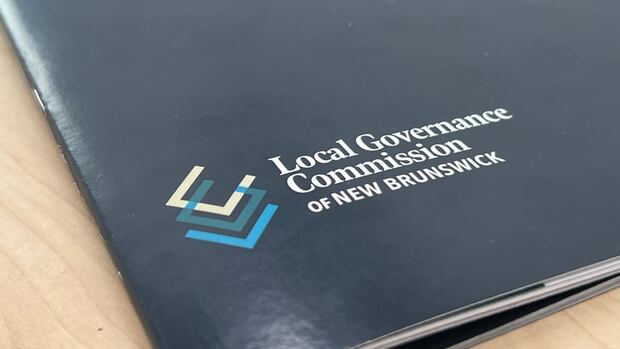New BrunswickTraining on topics like conflict of interest and good behaviour might be a new reality for elected municipal councillors across New Brunswick, to prevent what a new report calls ‘avoidable expenses, conflicts and stress.’Request comes after several council flare-ups across province in wake of amalgamation Sam Farley · CBC News · Posted: Sep 17, 2025 4:35 PM EDT | Last Updated: September 17A new report by the Local Governance Commission calls for mandatory training for elected municipal officials and senior staff. (Sam Farley/CBC)Training on topics like conflict of interest and good behaviour might be a new reality for elected municipal councillors across New Brunswick, to prevent what a new report calls “avoidable expenses, conflicts and stress.”The Local Governance Commission of New Brunswick, formed last year, issued its first annual report late Monday afternoon.Mandatory training for municipal councillors and senior staff was one of 10 recommendations it made to the Department of Environment and Local Government.”That’s something that we’ve heard quite broadly across the province, that councillors and staff alike would really like additional training opportunities to help support them in these new realities following local governance reform,” commission director and general counsel Mary Oley said in an interview.WATCH | ‘There’s definitely a need for more robust training’:Commission calls for mandatory training for all municipal councillors and staffFollowing resignations and infighting on several amalgamated councils across New Brunswick, the Local Governance Commission is asking the province to require training on codes of conduct and other key tenets of democratic service.Oley said the commission has seen “recurring issues” of code of conduct decisions being incorrectly made during closed meetings, which is something mandatory training could address. The report said that in the past year, commission chair Giselle Goguen and her team have received many inquiries from local government staff and elected officials, many of which “revealed a misunderstanding” around the principles of local government and the rules that must be followed on things like code of conduct violations and matters that place people in a conflict of interest situation.Without mandatory training, Goguen wrote in the report, “this confusion will continue to create avoidable expenses, conflicts and stress for elected officials, senior staff and residents.”She suggested that training touch on matters including: the differences in responsibilities for elected officials and municipal staff, procedural bylaws, closed meetings, fiscal management, legislative interpretation, and right to information laws. While the report didn’t touch on any specific situations, New Brunswick communities created under amalgamation in 2023 – including Strait Shores, Sunbury-York South, Grand Lake, Fundy-Albert and Heron Bay – have seen resignations or flareups between councillors. Goguen highlighted the need for training for municipalities that had faced amalgamation in particular, adding that they need “tools to help them build the capacity and knowledge required to operate efficiently” following the major change in their community.The recommendation included a request that the province include sanctions if mandatory training is not completed within the required timeline. Their lives have not been easy, with all of the level of conflict, and councils melting down, and resignations and harassment, and code of conduct issues and needing to appoint administrators to take over municipalities in certain cases.— Geoff Martin, speaking of provincial officials dealing with municipalitiesThe commission also suggested training be made available to people considering running for elected office even before they put their name on a ballot, so that they are aware of what is required should they win a seat.Another recommendation asks for the commission to have the power to impose training as a sanction if an elected official violates the code of conduct or conflict of interest bylaws.CBC News requested an interview about the report with Local Government Minister Aaron Kennedy, or anyone from his department, but nobody was made available Wednesday. Kennedy did tell Radio-Canada reporter in French that he believed mandatory training was a good idea because some elected officials might not understand all of the parts of their jobs. Dan Murphy, executive director of the Union of Municipalities of New Brunswick, said his group has been pushing for more training for years. (Submitted by Kandise Brown)Dan Murphy, executive director of the Union of Municipalities of New Brunswick, welcomed the call for training, something his group has been seeking. “Just understanding what the roles and responsibilities are and what your role in governance is, I think will help you make better decisions for the community and help provide stronger local governments at the end of the day.”Murphy said amalgamation was a “drastic” change that some municipalities are still adapting to. With local elections looming in the spring of 2026, he said it’s the perfect time to bring in training requirements. Geoff Martin, who teaches political science at Mount Allison University and studies New Brunswick municipal politics, also supports the training.Geoff Martin, shown in a file photo from March, said the need for training highlights his belief that amalgamation was pushed too quickly by the province. (CBC)Post-amalgamation, Martin said the problems from the last few years “have indicated that there was not enough preparation, enough education done for newly elected municipal councillors, particularly in new municipalities that were very much sort of finding their way.”He pointed to Dorchester, which used to be a small village with its own council. Now it is part of the larger regional municipality of Tantramar, and has only a single councillor. Martin said many municipal staff who started their jobs after amalgamation had more experience in business as opposed to local government, so they wouldn’t have experience in right to information, code of conduct, confidentiality or transparency requirements. Martin said he hopes officials with the provincial department will recognize the need for more training “because their lives have not been easy, with all of the level of conflict, and councils melting down, and resignations and harassment, and code of conduct issues and needing to appoint administrators to take over municipalities in certain cases, and all these kinds of things.”So I would think, at least to some degree, they will see the wisdom of that.”ABOUT THE AUTHORSam Farley is a Fredericton-based reporter at CBC New Brunswick. Originally from Boston, he is a journalism graduate of the University of King’s College in Halifax. He can be reached at sam.farley@cbc.ca
Mandatory training for local councillors, staff could prevent conflicts, N.B. commission says











